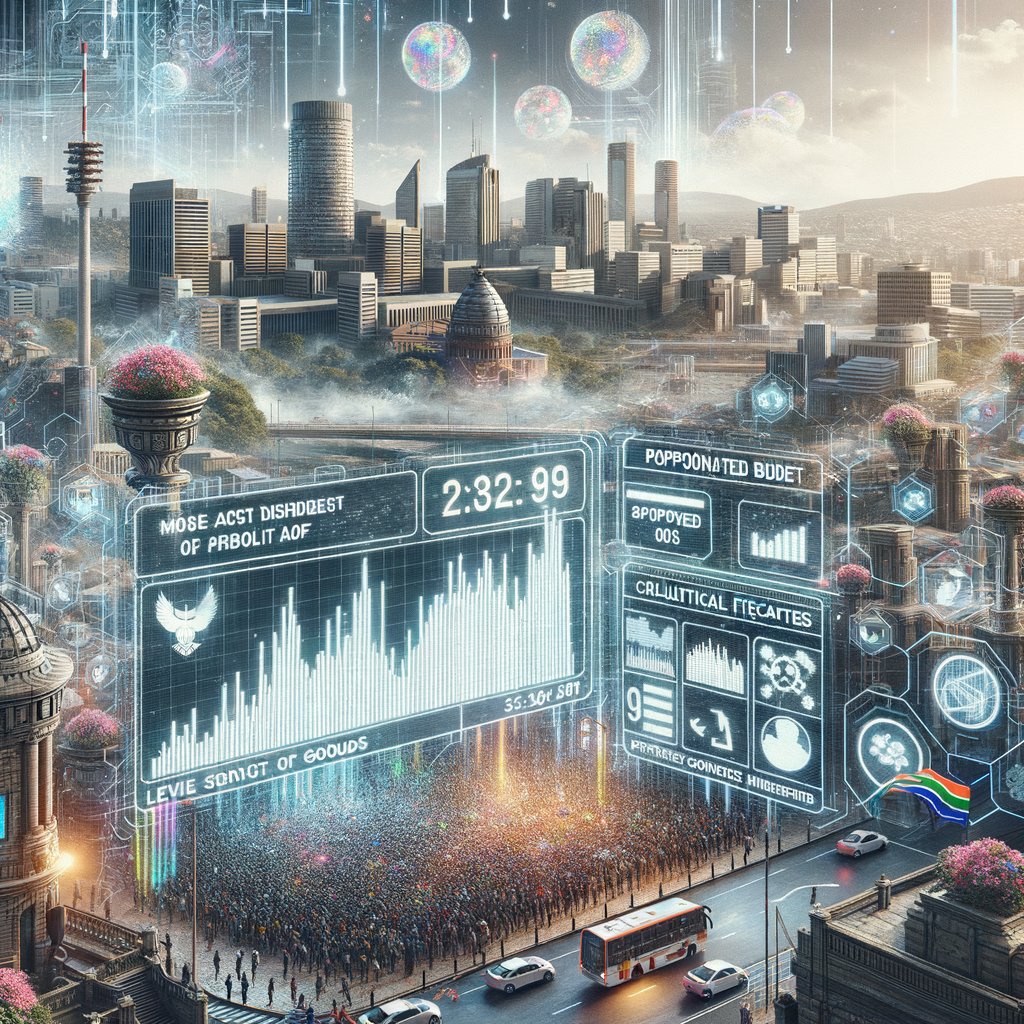Image created by AI
South Africa's Historic Budget Postponement Sparks Economic Concerns, Reveals Deep Political Fractures
In an unprecedented development in South African politics, the National Budget's postponement—the first in the nation's history—has sparked concerns of economic instability and revealed salient political fractures within the Government of National Unity (GNU). During a discussion with Sizwe Mpofu-Walsh at the Friedrich-Naumann-Foundation's Freedom Dialogue in Parktown, Johannesburg, ANC Secretary-General Fikile Mbalula expressed serious concerns about the country's current economic trajectory and the internal unity of the GNU.
The postponed budget, originally slated for approval last month, proposed a controversial VAT increase from 15% to 17%. However, facing backlash and amidst growing economic hardships such as high unemployment rates, soaring food costs, and escalating electricity prices, this proposal has been reviewed. Recent suggestions by the National Treasury, supported by the ANC, lean towards a more moderate VAT increase of 0.75 percentage points.
[WATCH]
— SABC News (@SABCNews) March 5, 2025
As the finance minister is preparing to deliver his budget speech, one organisation is adamant that a 20% sugar tax increase will curtail the prevalence of non-communicable diseases in the country. Program director at HEALA Petronella Kruger explains. pic.twitter.com/ilZrFzQsRL
Mbalula emphasized the importance of the upcoming budget, rescheduled for March 12, 2025, underlining its critical role in economic stability. Despite his optimism for its passage, he cautioned that the budget "might be one that not all of us agree with." This statement reflects the internal dissent and the stress on the coalition governing structure, which encompasses a diverse 10-party framework.
The ANC’s January resolutions from a National Executive Committee (NEC) Lekgotla included several key economic proposals, such as implementing a fuel price cap, VAT exemptions on electricity, and expanding the VAT zero-rate list to include essential nutritious foods. These points underscore the party's shift towards more populist measures in response to the growing public distress over living costs.
The risk of a fractured GNU, as seen in occasional legislative standoffs over major policies including the NHI Act, Bela Act, and Expropriation Act, casts long shadows over the political landscape. Mbalula acknowledged the potential inadequacy of current conflict resolution mechanisms within the GNU, admitting, "This is uncharted waters."
Amid this turmoil, the ANC is also grappling with internal reconfigurations and a noticeable decline in electoral support. Mbalula highlighted recent organizational changes within party structures in Gauteng and KwaZulu-Natal following setbacks in the 2024 general elections. These changes signal a strategic pivot as the ANC prepares for future battles, emphasizing grassroots mobilization and internal renewal.
As South Africa navigates these turbulent waters, the outcomes of the upcoming budget and the ANC’s ability to maintain cohesion within the GNU will be critical. The unfolding economic policies and political strategies will undoubtedly shape the nation’s trajectory in the coming years, making the next steps crucial for both the ruling party and the country at large.










